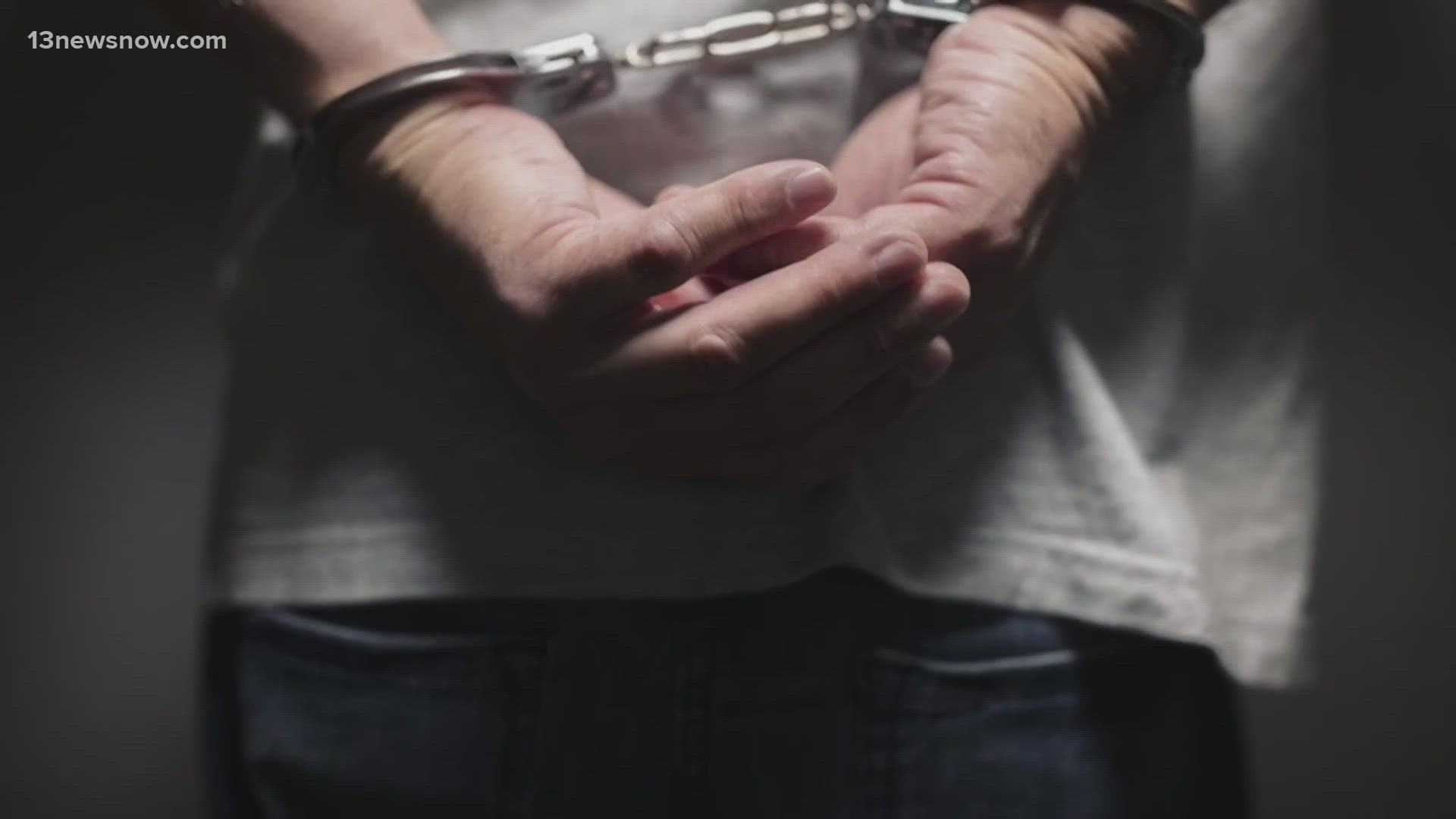VIRGINIA, USA — Some Virginia state lawmakers and activists are raising questions about changes to the process of restoring civil rights to felons under Gov. Glenn Youngkin.
They assert the Youngkin administration peeled back policies that allowed former inmates with nonviolent felonies to regain the right to vote with ease.
Virginia State Sen. Lionell Spruill (D-Chesapeake) claims the policy change led to a steep decline in the number of people who had their rights restored.
Spruill, the chair of the Senate Privileges and Elections committee, penned a letter to Secretary of the Commonwealth Kay C. James after someone alerted him to possible changes in the process.
"When did the governor change the process?" said Spruill. "I didn't know about it."
In a letter to Spruill on March 22, James wrote, after his inauguration, Youngkin instructed her team to review the application and review process were "legal and fair -- and that every applicant be considered individually" per state law.
In Virginia, anyone convicted of a felony automatically loses their civil rights, including the right to vote, and people must petition the governor, who has the sole discretion to restore those rights, per the state's constitution.
"The biggest thing is what criteria is he using?" Spruill told 13News Now.
In recent years, the prior three governors have gradually made the process easier for felons, starting with former Virginia Gov. Robert McDonnell, a Republican.
In 2013, McDonnell eased requirements and made approval for former prisoners with non-violent felonies "automatic" after serving their sentences.
His Democratic successors Terry McAuliffe and Ralph Northam built on that policy, which resulted in hundreds of thousands of people gaining back the right to vote.
“You still had to ask, but when you did ask it was automatically restored, and the difference now is there are a who lot of barriers," said Del. Don Scott (D-Portsmouth).
Scott, who spent time in prison for a federal drug offense, is one of the thousands of people who regained their rights under McDonnell. Years later, Scott is now a prominent attorney in Hampton Roads and a top lawmaker in the General Assembly.
"I would not be the minority leader in the House of Delegates right now had not a Republican governor knew that it was good to make sure that every citizen participated fully in our democracy," said Scott.
According to Sec. James, her office worked with several state departments to "update the process," including to ensure every felon receives a paper application for restoration, along with an explanation of the process, upon his or her release from prison.
People can also apply online, where the agency's website was "updated to include applications are considered individually and not granted on automatic basis," James wrote.
Spokeswoman for Gov. Youngkin's office Macaulay Porter said the governor does not take the sole responsibility of restoring Virginians' civil rights "lightly," and that "he believes in the importance of second chances."
"Restoration of rights are assessed on an individual basis according to the law and take into consideration the unique elements of each situation, practicing grace for those who need it and ensuring public safety for our community and families," she said. "The Department of Corrections and the Secretary of the Commonwealth work with the appropriate agencies to restore an individual's rights."
The Virginia chapters of the ACLU and the NAACP released strong statements against the change.
"The significant reduction of restoring rights to vote is a step backward," said Virginia NAACP president Robert Barnette.
“The Youngkin administration’s failure to disclose the criteria by which it will review incarcerated people’s applications for the restoration of their voting rights is hugely concerning," said Ashna Khanna, the police director for the Virginia chapter of ACLU.
Virginia and Kentucky are the only states that permanently disenfranchise anyone with a felony conviction, according to the ACLU.
Bipartisan efforts to add automatic restoration recently failed in the Virginia General Assembly.
Spruill said he is concerned about the impact changes could have on people of color.
“Please change it back," he said. "So we can go on about our business and give those who are nonviolent the opportunity to have their rights restored.”
The Secretary of the Commonwealth Kay James said a roundtable is scheduled for advocates in April to discuss the process.

